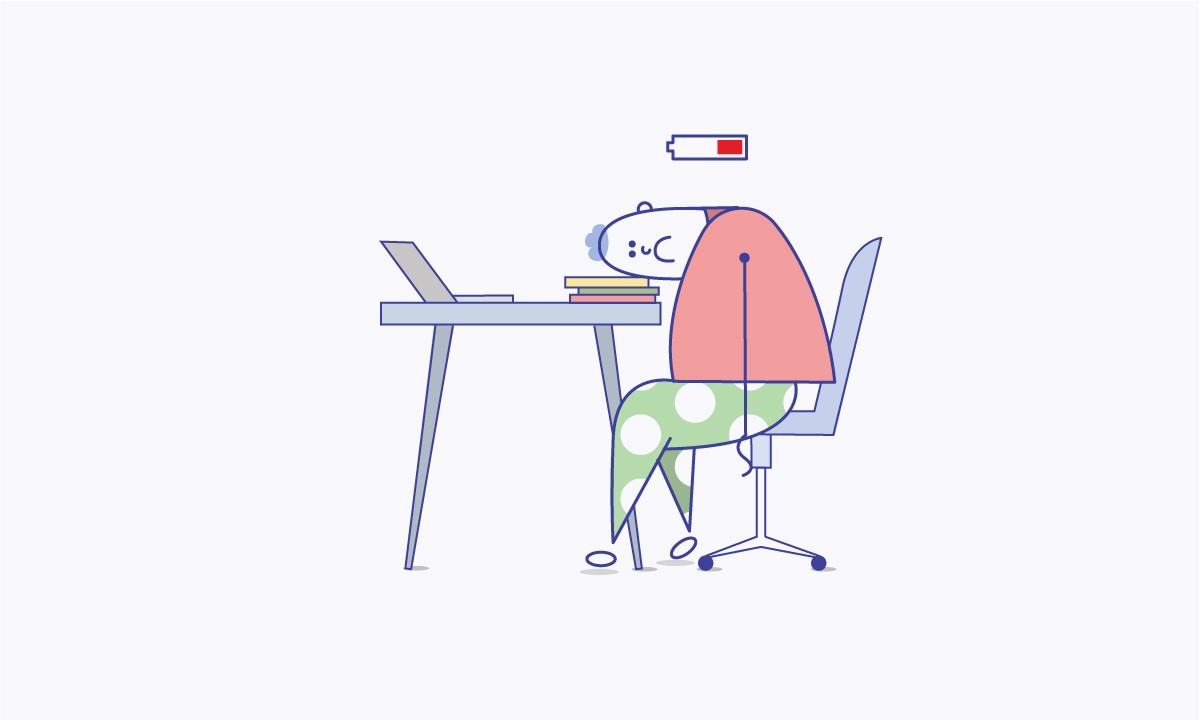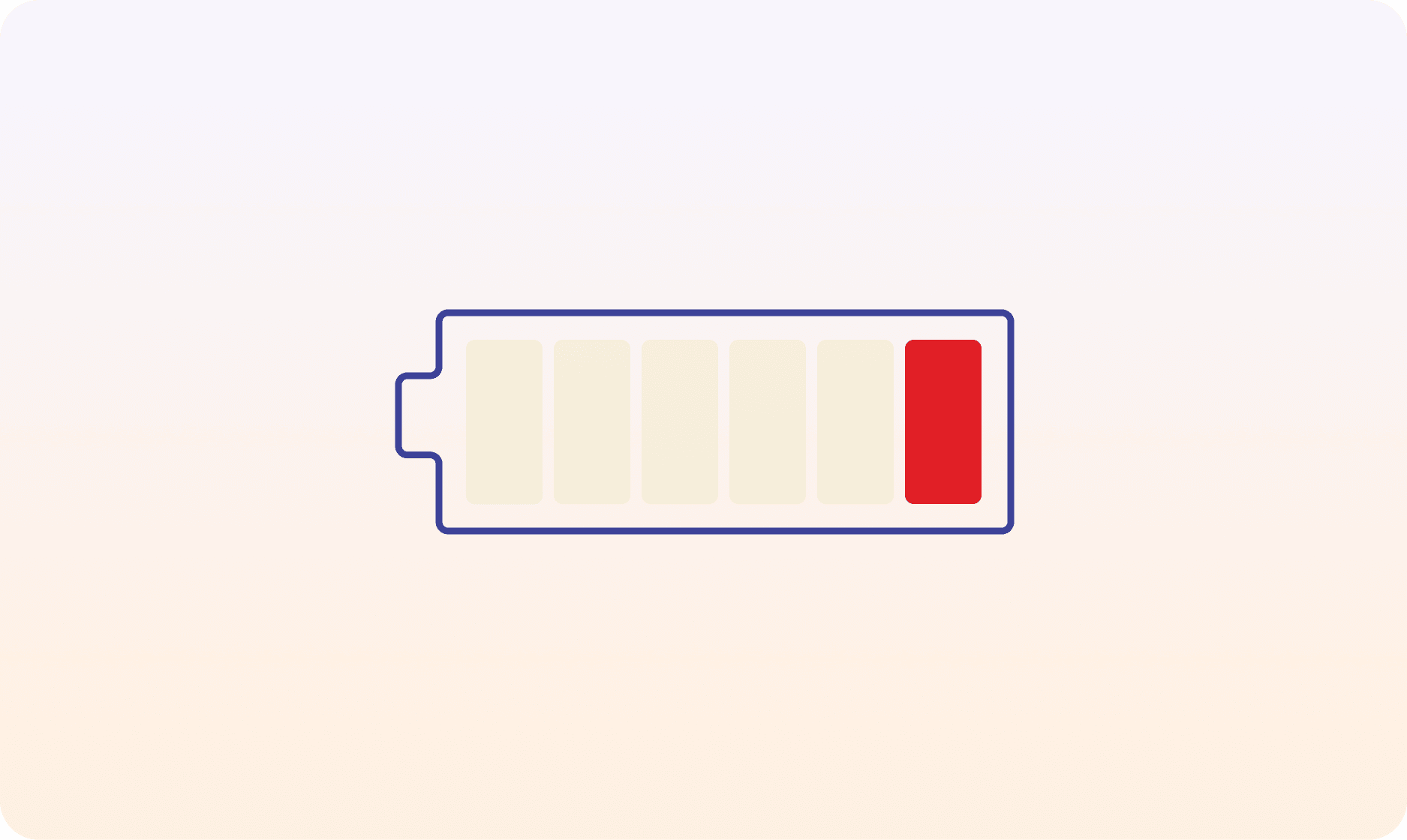How regular time off can prevent burnout
Feb 28, 2023

Have you been hoarding your vacation days in anticipation of calmer times and hours once again spent in mid-air transport somewhere over the Himalayas? And have you been feeling unmotivated, irritable and generally prone to shaking your fist at a growing task list and incessant Slack notifications? There might just be a connection between the two, my friend.
In a time when we all sorely need a vacation, we've also been taking—you guessed it—the least time off. This irony is mostly because working from home and not being able to travel anywhere makes us feel like we have very few options to recharge.
Seeing thousands lose their jobs can also lay on the guilt and force us to be present all day, every day, and justify our steady paycheques.
And when we're all hyper-connected and constantly plugged in, truly restorative time off seems like something only those with heads in the clouds dream of.
Assume we're yelling this next sentence through a megaphone:
The best time to take time off was yesterday. The second best time is now.
Taking regular time off does more than give you somewhere to go that's not your desk, kitchen or couch. It can prevent burnout, that all-pervasive phenomenon that shatters motivation and numbs emotions.
Taking time off can restore work-life balance
Taking a break from work is wonderful for creating that much-sought-after balance between work and non-work life. Even if you maintain strict 9-5 hours at work, the knock-on effect doesn't allow you to detach entirely from work before the next day begins.
But if you give yourself a couple of days to do this, it's as good as pressing a "reset" button on life. No notifications, emails and meetings equal entire days spent indulging your passions, hanging out with family or doing nothing (Niksen, anyone?). Over time, you'll get better at leaving work at work!
Regular time off helps to maintain productivity
No, we don't mean the frantic panicky productivity that "hustle 24/7" and "go hard or go home" posters inspire. As James Clear puts it, productivity means "getting important things done consistently", making it a long game of steady speed and efficiency.
Taking regular time off helps you check your speed every once in a while, make repairs, and hit the metaphorical road in ideal conditions again. This becomes way more important when you're burnt out and have taxed your cognitive resources to the maximum. Taking time off allows you to replenish resources and generate new ideas that can lead to even better work.
Time off creates room for active recovery
When you go to a doctor about a broken ankle, they'll say one word: rest. What they won't say is "put pressure on what's already broken and hobble along anyway". So why do we do exactly that when we're burnt out?
When you're burnt out or on the verge of it, taking time off creates the space to complete the stress cycle and alleviate symptoms. Bringing your body back into a state of calm after a stressful period is key to preventing burnout.
How to prepare for regular time off to prevent burnout
During your time off work, you'll want to completely disconnect from anything that remotely reminds you of your job description. That calls for processes that make taking regular time off easier and doesn't shift the pressure onto your colleagues like a work version of Hot Potato.
When employers set these measures at an organisational level, it's even better! Doing so normalises taking time off work, enshrines intention into policy, and creates healthier and more productive teams.
Mark time off on team calendars
This one's a no brainer: mark your time-off on your calendar so that your colleagues know well in advance. We'd also recommend setting up an auto-decline meetings trigger so that, in case you get meeting invites during your time off, they're declined automatically. Project plans stay safe, and so do time-off plans. Win!
Buddy up with a colleague
Have someone on your team with overlapping responsibilities? Ask them if they'll be able to take over your share of work. In return, do the same for them when they take time off. Doing this reduces pressure on the team and creates a backup system that ensures work stays on track. After all, work and wellbeing are equal priorities, so neither should be neglected!
Make regular time off a part of organisational culture
It can be daunting to be the only one taking regular time off, especially if you're wary of being judged. Managers and higher-ups can easily remedy this by making regular time off a part of organisational culture.
We tend to conform to the norm, so why not make that norm a good thing, right? The more this is done, the more comfortable everyone is with taking time off for prevention instead of cure!


